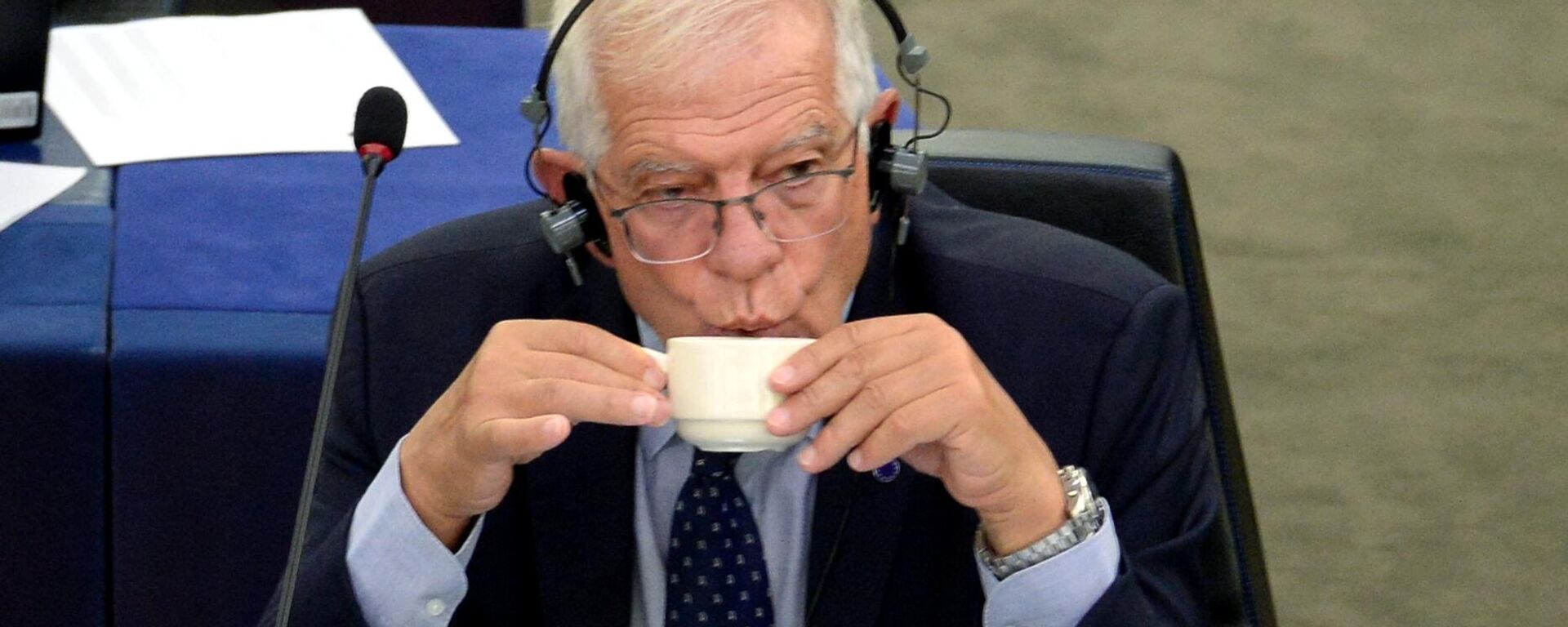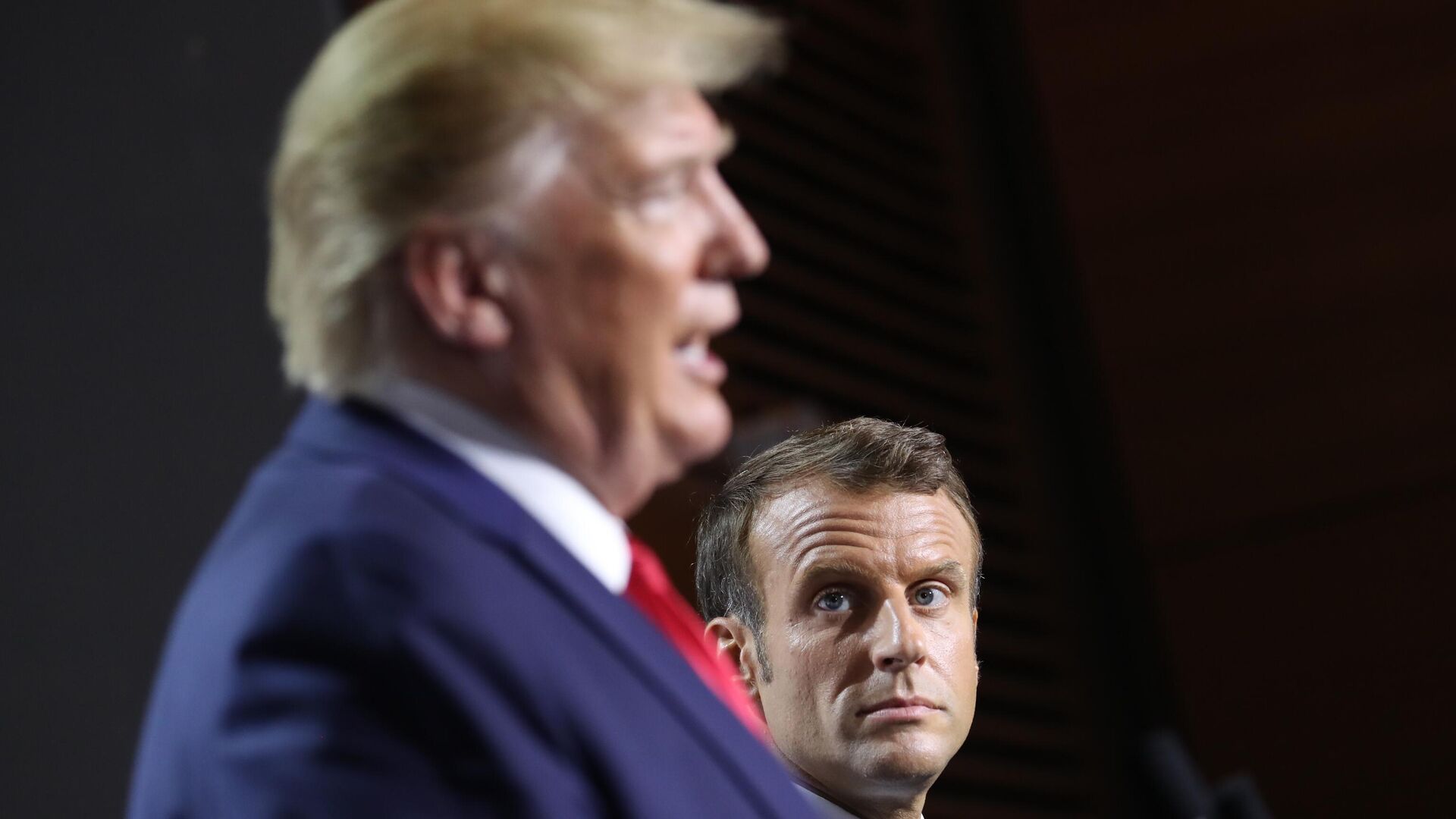https://sputnikglobe.com/20241117/trump-not-even-in-power-yet-and-already-wreaking-havoc-on-european-markets-1120909330.html
Trump Not Even in Power Yet and Already Wreaking Havoc on European Markets
Trump Not Even in Power Yet and Already Wreaking Havoc on European Markets
Sputnik International
Donald Trump's expected return to the White House in January has been met with intense skepticism by both political and economic elites in Europe.
2024-11-17T13:06+0000
2024-11-17T13:06+0000
2024-11-17T13:06+0000
economy
business
donald trump
robert lighthizer
china
european union (eu)
nafta
trade
trade war
market
https://cdn1.img.sputnikglobe.com/img/07e8/0b/08/1120823681_0:160:3072:1888_1920x0_80_0_0_601c18852691892dd528182e468293e0.jpg
European markets are trending downward and the euro has slid to its worst dip against the US dollar since the 2022 energy crisis in anticipation of Donald Trump’s return to the White House.Barclays analysts cited by the Financial Times dubbed the Stoxx Europe 600’s poor performance compared to US markets – which soared on news of Trump’s reelection last week, a “Trump premium.”ING global markets head Chris Turner explained the situation in no uncertain terms: “Investors fear that Europe will be in the front line of the coming trade war.”The president-elect appeared to confirm as much last week with his reported plans to rehire noted trade hawk Robert Lighthizer as his trade czar. During Trump’s first term, Lighthizer kicked off a trade war with China, strongarmed Canada and Mexico into renegotiating NAFTA, and slapped tariffs of up to 25% on steel and 10% on aluminum imports from much of the world, including Europe.FT says the specter of new Trump tariffs, combined with China’s growing industrial might, could push European manufacturers deeper into crisis. The latter are already reeling from Brussels’ shortsighted 2022 decision to try to wean the EU off Russian energy, which thrust regional industrial powerhouses into recession and arguably the worst deindustrialization crisis since WWII.The markets' reaction to Trump's victory echoed a string of pessimistic analyses on Europe's prospects under Trump generally, expecting the president-elect to "test European solidarity on NATO, Ukraine and trade," and prove "2025's disaster" for a Germany lurching "from crisis to crisis."Representatives of Europe's political class couldn't help but express disdain for Trump following last week's election, with outgoing EU foreign policy chief Josep Borrell telling colleagues in Brussels this week that Trump's victory "is going to have many geopolitical consequences."
https://sputnikglobe.com/20241112/eu-now-has-two-choices-new-arms-race-or-mend-fences-with-russia--swedish-military-veteran-1120867792.html
https://sputnikglobe.com/20241114/eus-top-diplomat-likens-trump-to-fascist-dictator-franco-prepares-for-long-term-decline-in-ties-1120884589.html
china
Sputnik International
feedback@sputniknews.com
+74956456601
MIA „Rossiya Segodnya“
2024
News
en_EN
Sputnik International
feedback@sputniknews.com
+74956456601
MIA „Rossiya Segodnya“
Sputnik International
feedback@sputniknews.com
+74956456601
MIA „Rossiya Segodnya“
is donald trump good or bad for europe, will eu be better or worse under trump, why does europe fear trump, does europe fear trump
is donald trump good or bad for europe, will eu be better or worse under trump, why does europe fear trump, does europe fear trump
Trump Not Even in Power Yet and Already Wreaking Havoc on European Markets
Donald Trump's expected return to the White House in January has been met with intense skepticism by both political and economic elites in Europe.
European markets are trending downward and the euro has slid to its worst dip against the US dollar since the 2022 energy crisis in anticipation of Donald Trump’s return to the White House.
The cause? Fears that Trump will make good on his campaign promises to level cross-the-board 10-20% tariffs on all foreign imports, including those coming from Europe.
Barclays analysts cited by the Financial Times dubbed the Stoxx Europe 600’s poor performance compared to US markets – which soared on news of Trump’s reelection last week, a “Trump premium.”
ING global markets head Chris Turner
explained the situation in no uncertain terms: “Investors fear that Europe will be in the front line of the coming trade war.”
“Trump’s not messing around,” Markus Hansen, portfolio manager at Vontobel, a Zurich-based investment management firm, said. “His administration wants to get going on tariffs from day one” and the Europeans “will find themselves in the crossfire.”
The president-elect appeared to confirm as much last week with his reported plans to rehire noted trade hawk Robert Lighthizer as his trade czar. During Trump’s first term, Lighthizer kicked off a trade war with China, strongarmed Canada and Mexico into renegotiating NAFTA, and slapped tariffs of up to 25% on steel and 10% on aluminum imports from much of the world, including Europe.
FT says the specter of new Trump tariffs, combined with China’s growing industrial might, could push European manufacturers deeper into crisis. The latter are already reeling from Brussels’ shortsighted 2022 decision to try to wean the EU off Russian energy, which thrust regional industrial powerhouses into recession and arguably the worst deindustrialization crisis since WWII.

12 November 2024, 16:34 GMT
Jeffries investment banking chief European economist Mohit Kumar confirmed to FT that Europe’s poor performance is tied to the fact that its “cheap energy model has been broken” by the Ukraine crisis.
The markets' reaction to Trump's victory echoed a string of
pessimistic analyses on Europe's prospects under Trump generally, expecting the president-elect to "test European solidarity on NATO, Ukraine and trade," and prove "2025's disaster" for a Germany lurching "from crisis to crisis."
Representatives of Europe's political class couldn't help but express disdain for Trump following last week's election, with outgoing EU foreign policy chief Josep Borrell
telling colleagues in Brussels this week that Trump's victory "is going to have many geopolitical consequences."
"We have to show that we are not afraid or divided - although in reality we surely are, because the reception to President Trump's victory has not been the same in all [European] capitals. In any case, the result will have profound consequences for our bilateral relations. Trump talks about imposing 10% tariffs on all European products. If such a thing were to happen, it would certainly affect our competitiveness," Borrell said.

14 November 2024, 13:08 GMT




